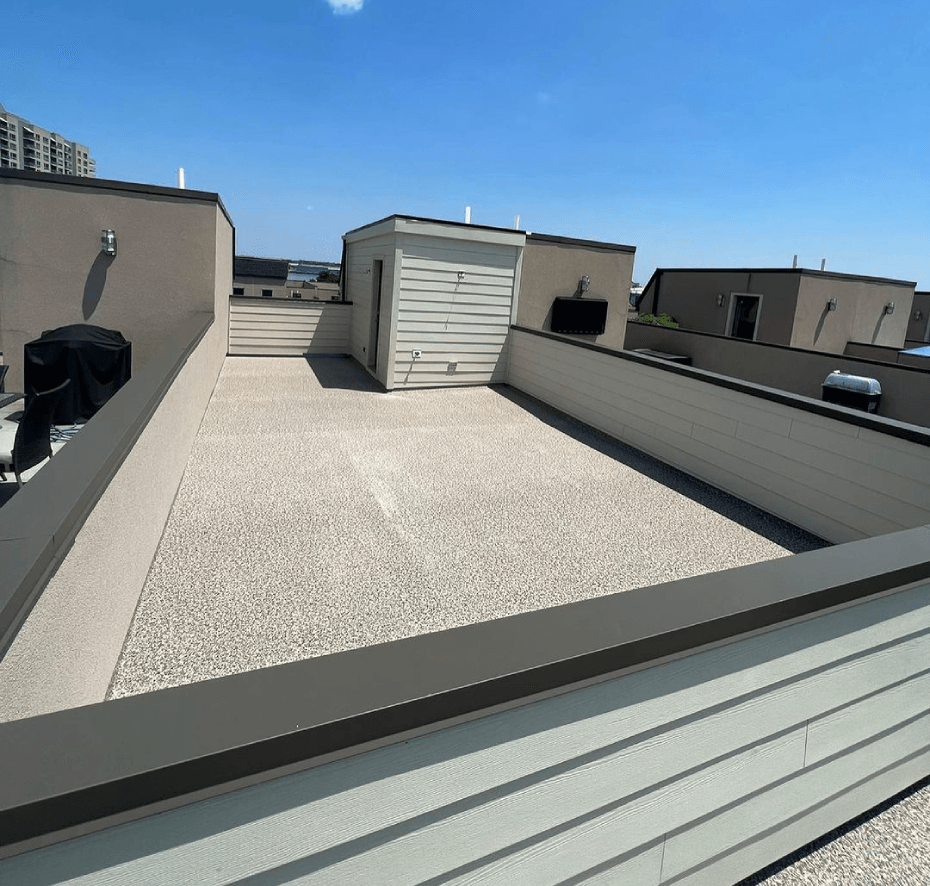5.0
125+Call
215-713-4178

How to Catch Roof Leaks Early
The Philadelphia Area’s Roof Leak Repair Experts
Catching a roof leak early can save you a lot of trouble and expense down the line. At Philadelphia Quality Roofing, we know that spotting these leaks early isn’t always easy, but it’s crucial for maintaining the health of your home. Here are some practical tips to help you catch roof leaks before they become serious problems.
1. Regular Roof Inspections
Set a schedule for regular roof inspections with our expert roofers; at least once a year is ideal. This helps catch potential problems before they lead to leaks. We’ll look for missing, damaged, or aging shingles, as well as any signs of wear around roof fixtures like chimneys or vent pipes.
2. Monitor the Attic
Your attic can tell you a lot about the health of your roof. Periodically check your attic for signs of water intrusion, especially after heavy rain. Dark stains on the wood, damp rafters, or a musty smell are clear indicators that water is making its way into your home. Catching these signs early can prevent a small leak from turning into a major issue.
3. Check Flashings
Flashings are the pieces of metal used to seal the edges and gaps on your roof, particularly around chimneys, skylights, and vent pipes. These areas are common sites for leaks because they can easily become loose or corroded. Make sure the flashings are intact and not lifted or broken. Any gaps or signs of rust are a prompt to take action.
4. Look for Shingle Granules
Keep an eye on your gutters and downspouts for shingle granules. Roofs tend to lose more granules toward the end of their life cycle, and an excessive amount could suggest that your shingles are wearing out. Worn shingles make leaks much more likely, so if you start noticing granules in your gutters, it might be time to consider some roof repairs or a roof replacement.
5. Pay Attention to Signs Inside Your Home
Sometimes the first signs of a roof leak appear inside your home. Watch for peeling paint, discolored plaster, or damp spots on your ceilings—especially after a storm. These signs can indicate a leak, even if it’s minor. Addressing these early can prevent the extensive interior damage that might follow.
6. Keep Gutters Clean
Clogged gutters can cause water to pool on your roof, leading to leaks. Ensure your gutters and downspouts are free from debris like leaves and twigs. Regular cleaning, particularly during the fall when leaves are falling, can prevent water from backing up and causing problems.
Call Our Philadelphia Roofers For Expert Leak Repair Today
At Philadelphia Quality Roofing, we provide expert roof inspections and maintenance services to help you stay ahead of potential issues. By keeping an eye on the condition of your roof and acting quickly at the first sign of trouble, you can protect your home from the damaging effects of leaks. If you think your roof may be compromised, don’t hesitate to reach out today!